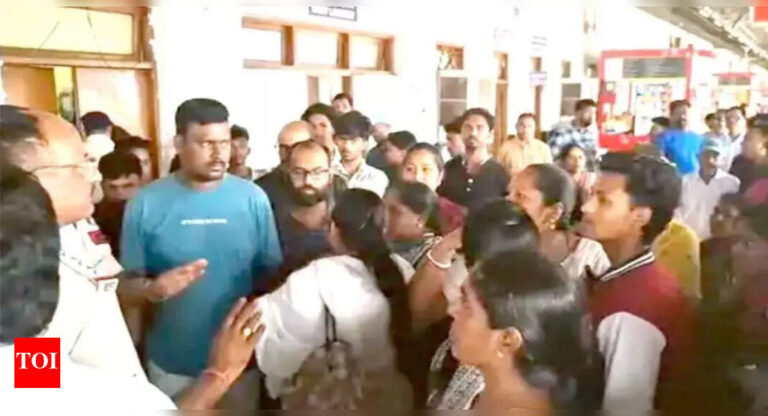
MUMBAI: Observing that no cogent evidence was present, after nearly 17 long years, a Special National Investigation Agency (NIA) court in Mumbai today acquitted seven accused including Pragya Singh Thakur who became a BJP MP from Bhopal in 2019 and Lt Col Prasad Purohit in the 2008 Malegaon blast case. All accused were out on bail.While delivering the verdict, the special court observed that mere suspicion cannot replace concrete evidence, and emphasised that terrorism has no religion. It also awarded a compensation of Rs 2 lakh to each of the deceased victim and Rs 50,000 to the injured.Key observations made by the Special NIA court:
- The court said the prosecution failed to provide cogent and reliable evidence to prove the charges. It noted that strong suspicion alone cannot justify conviction.
- The court acknowledged that a blast occurred in Malegaon, resulting in homicidal deaths, but held that the prosecution could not establish that the bomb was planted in the motorcycle recovered from the scene.
- The chassis number of the motorcycle was wiped out, and there was no reliable evidence to prove that Pragya Singh Thakur owned the vehicle. The court noted that she had renounced material possessions two years prior to the blast.
- The court observed that the blast site was not properly barricaded, leading to contamination of the crime scene, which undermined evidence collection.
- The court concluded that the number of injured persons was 95, not 101 as claimed by the prosecution. It also found manipulations in some medical certificates.
- The court said there was no proof that Lt Col Purohit stored RDX at his home, brought it from Kashmir, or assembled the bomb at his residence.
- The court found that alleged conspiracy meetings — key to the prosecution’s case — were not proven with credible evidence.
- The court held that charges under the Unlawful Activities (Prevention) Act (UAPA) could not be invoked in the absence of proof of conspiracy or terrorist intent.
- The judge observed that terrorism has no religion, and no faith teaches violence, stressing that moral perception cannot replace legal evidence in a court of law.








